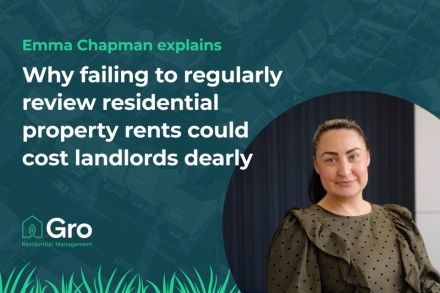A landlord's guide to the new 'breathing space' Debt Respite Scheme

By Helen Everritt, Property Manager
With the Covid-19 pandemic causing society to be burdened by record levels of debt, many tenants have been left suffering from serious financial problems.
To help people still struggling find a solution, the Government recently introduced the Debt Respite Scheme – also known as the ‘Breathing Space’ initiative.
It follows calls from many charities for such a scheme over the last decade, and since plans were announced by UK Government to bring it into law back in 2019, the impact of Covid-19 has driven more people into problem debt.
So, since 4th May 2021, debtors have been given more legal protection.
That means it is important for landlords to understand the implications of this new law moving forwards.
What is the Debt Respite Scheme?
Basically, it gives tenants who are in arrears the ‘breathing space’ to get their finances in order. They can also benefit from some legal protections which prevent landlords evicting them or contacting them to recover money they owe.
The ‘breathing space’ scheme applies to debts of any kind, not just those owed to the landlord, such as rent arrears.
The time should be used to arrange payment plans and consolidate debts into an affordable monthly payment. If the debtor does not use the time correctly, their allocated debt advisor can cancel the breathing space period.
Who grants tenants ‘breathing space’?
Only an approved debt advice provider, who is authorised by the Financial Conduct Authority (FCA) to offer debt counselling, or a local authority which provides debt advice to residents can start the 'breathing space' process.
They then act as the main point of contact between the person in debt and their creditors, appointed agents and the Insolvency Service (who own and maintain the electronic service).
What type of breathing spaces are there?
Essentially, tenants have been able to opt to enter two types of breathing space.
- Standard breathing space: Available to anyone with problem debt, applicants can enjoy legal protection from all creditor action for a maximum of 60 days. During this time, most enforcement action and contact from creditors must stop. Most interest and charges on debt are also frozen.
- Mental health crisis breathing space: Only available to people receiving mental health crisis treatment, this essentially operates in the same way as the ‘standard’ scheme along with some added protections. But the initiative lasts for the duration of the person’s mental health crisis treatment, and an additional 30 days, no matter how long the treatment last).
What must landlords do during a breathing space?
If a tenant has been granted ‘breathing space’, their landlord (or letting agent) should automatically be notified by post or email. Once received, make a record of the notification date immediately so you know when you can take action again, if necessary.
Next, identify any debts the tenant owes you and notify any agents acting on your behalf to pause activity.
If recovery action is already in progress, the court or tribunal must be given written notification of the breathing space. This allows them to take appropriate action and abide by these new legal protections.
During the ‘breathing space’ period, the only point of contact for all parties involved is the tenant’s allocated debt advisor.
What can’t a landlord do under the Debt Respite Scheme?
If your tenant enters a ‘breathing space’ period, UK law now states you must not:
- Contact them directly in relation to debt
- Charge interest on debts covered by the breathing space period
- Enforce an existing debt-related judgement
- Apply for a debt-related judgement
- Serve a debt-related repossession notice
- Obtain a debt-related warrant
- Sell a debt to a third party
- Take control of a tenant’s belongings
- Request third-party deductions from benefits
- Start bankruptcy proceedings
Landlords can only contact the tenant directly for separate issues unrelated to debt, such as routine maintenance or safety checks.
Should a tenant wish to initiate talks with you about their debt or a potential solution, you are allowed to do so and provide answers.
What can landlords do to protect their own interests?
When a tenant needs to call upon the Debt Respite Scheme’s protection, landlords are fairly helpless to act when it comes to debt-related matters. This of course is hardly ideal when your lender will still want their mortgage repayment.
It’s important to remember that a ‘breathing space’ is NOT a payment holiday.
Tenants still have to pay their rent during this time. If the tenant defaults, their debt adviser could choose to call time on the agreement. They will also have to pay any accrued debts they owe (in full) when the grace period ends.
To avoid sustaining unmanageable levels of rent arrears, there are a few other steps landlords can take that will help protect their own interests.
Whilst you cannot contact a tenant about debt during a ‘breathing space’ period, you can get in touch with a guarantor.
It is perhaps best to be patient. In most cases where a mental health breathing space is granted, a tenant or their carer will often ask to end the tenancy if treatment lasts more than 60 days. Not only will this stop debt accruing, it will also allow you to find a new tenant.
Should you wish to safeguard your rental income, there are also plenty of Rent Protection Insurances now available on the market. If the tenant doesn’t pay, this will ensure you get your money on time, every month. Some policies will even pay out if the tenant pays late.
In theory, the Debt Respite Scheme could be a useful tool that helps landlords keep a previously reliable tenant who’s fallen on hard times because of some bad luck.
By giving them a bit of breathing space, it could help them arrange a sustainable plan to repay their debts. Time will tell, but surely that’s got to be far better than seeing them – and any money they owe you – disappear forever.
Should you need help to navigate these new laws, call 01482 566057 for friendly advice from our residential letting experts.





